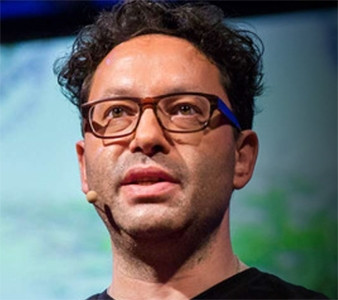ITWeb Industry Tech Update 2017
Register now to attend the inaugural ITWeb Industry Tech Update at The Focus Rooms, Sunninghill on 18 October 2017. Toby Shapshak will join other industry leaders in discussing the latest tech updates. Watch this space for the updated agenda.
I Toby Shapshak, editor-in-chief and publisher, Stuff magazine, will be speaking at the ITWeb Industry Tech Update 2017 on why innovation is better in Africa. The event will be held at the Focus Rooms, Sunninghill on 18 October.
Africa's distinctive problems have resulted in a unique brand of innovation. Out of necessity, these innovations usually involve the mobile phone. Our innovative spirit has produced ground-breaking inventions, such as the mobile payment system M-Pesa (through which $148 million a day or 40% of Kenya's GDP is transacted). What is even more thought-provoking is that while solving these problems for itself, the end result will benefit the rest of the world.
ITWeb Events: What are the three biggest challenges in the South African market when it comes to innovation in your opinion?
Shapshak: South Africa's biggest challenge in producing smart solutions to solve our biggest problems can be traced straight back to our lack of cheap wireless data.
Because our youngsters are more concerned about not blowing their airtime and data, they approach the Internet very cautiously. Most people use their mobiles to get online and are therefore dependent on free WiFi in public spaces or at offices for their heavy lifting. This means that their focus is on the wrong thing: airtime instead of innovation.
The next biggest challenge is that we're not educating our youth in the maths, science and engineering fields that are so necessary in this coding space. At their heart, maths and science are about understanding and tackling a problem using the language of mathematics and physics.
Finally, that "if you're going to fail, fail fast" mindset hasn't really been adopted here yet. Too many people experience failure in their early ventures and tend to be crushed by it. If the start-up culture of Silicon Valley has taught us anything, it's that this learning-by-failing mindset can help people be more successful in the long run.
ITWeb Events: Could you elaborate on the "unique brand of innovation" that you allude to in the synopsis of your talk?

Shapshak: The real world problems that need to be solved are the same the world over. In South Africa we lack electricity and Internet access, we have poor water reticulation, problems with sanitation and sewerage removal.
The way I define innovation is solving real problems.
All of these problems that we face as the same as those faced by the rest of the developing world, if we solve them in Africa, in the harshest of environments, we solve them for the rest of the world too. African innovators have been praised by former US President Barack Obama, Facebook CEO Mark Zuckerberg and Microsoft founder Bill Gates.
ITWeb Events: In your opinion what "ground-breaking inventions" can we expect to see in the future?
Shapshak: We've already got great examples of breakthrough technology in Africa. M-Pesa is the most cited example, and is by far the most successful mobile money service in the world. About 44% of the Kenya GDP is transacted through M-Pesa, which is no mean feat. Using this revolutionary payment method, we've seen great solar buying services like M-Kopa develop. And on the back of the great cellular switch on in Africa, blood delivery drones from Zipline have revolutionised keeping blood fresh and saving lives.
ITWeb Events: What are the three lessons learnt that you would like the attendees of ITU2017 to take away with them from your presentation?
Shapshak: I don't truck with Afro-pessimism. I think Africa is the most innovative, exciting place to be in the world. From pay-as-you-go cellphones, to mobile money, to clever ways to use mobile money to buy solar kits through M-Kopa, to life-changing education for farmers using SMSes by iCow, or report election violence of fraud using Ushahidi, we are a remarkable innovative people with great resilience and fortitude.
My talk looks at all the clever things we've done in Africa and why we should be proud of being African. Like the rest of the world - we need jobs. Our youth need jobs to be productive and feel a sense of self-respect. Tech is not only an enabler, but a great way to create jobs, which the economists tell us are going to come from small- and medium-sized enterprises. These small businesses will use technology like never before, and provide a great opportunity for our youngsters to develop solutions. Maybe the next Slack or WhatsApp will come from Africa.
Share